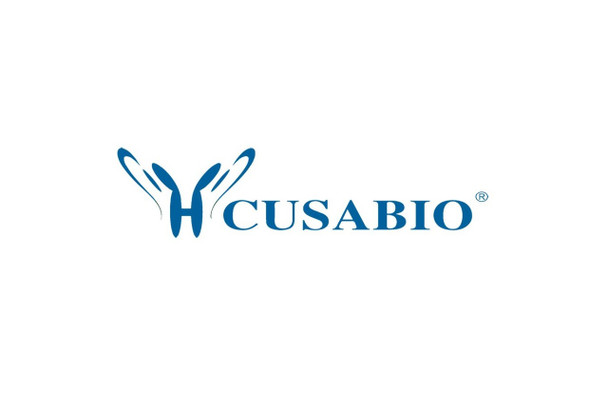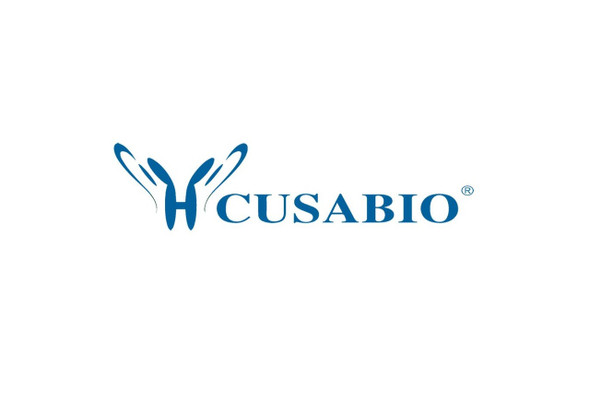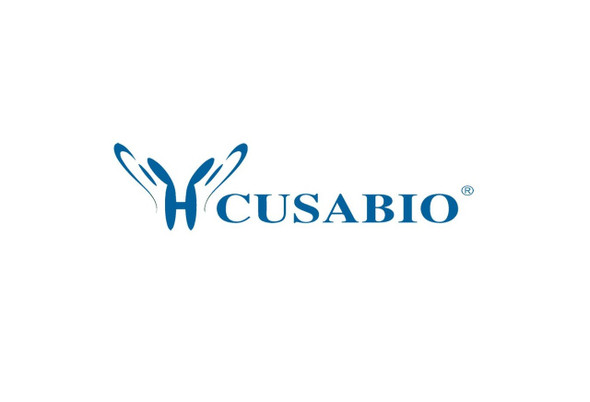Cusabio Human Recombinants
Recombinant Human Neuronal migration protein doublecortin (DCX) | CSB-EP006576HU
- SKU:
- CSB-EP006576HU
- Availability:
- 13 - 23 Working Days
Description
Recombinant Human Neuronal migration protein doublecortin (DCX) | CSB-EP006576HU | Cusabio
Alternative Name(s): Doublin Lissencephalin-X Short name: Lis-X
Gene Names: DCX
Research Areas: Neuroscience
Organism: Homo sapiens (Human)
AA Sequence: MKTLPLHSHCTEMQRLLPKLEMLTLGSSFCSLQGEFCQAMDSFTTVSHVGMCEETDASFNVFSPKFQFDRSHCQSLRFHQNMELDFGHFDERDKTSRNMRGSRMNGLPSPTHSAHCSFYRTRTLQALSNEKKAKKVRFYRNGDRYFKGIVYAVSSDRFRSFDALLADLTRSLSDNINLPQGVRYIYTIDGSRKIGSMDELEEGESYVCSSDNFFKKVEYTKNVNPNWSVNVKTSANMKAPQSLASSNSAQARENKDFVRPKLVTIIRSGVKPRKAVRVLLNKKTAHSFEQVLTDITEAIKLETGVVKKLYTLDGKQVTCLHDFFGDDDVFIACGPEKFRYAQDDFSLDENECRVMKGNPSATAGPKASPTPQKTSAKSPGPMRRSKSPADSANGTSSSQLSTPKSKQSPISTPTSPGSLRKHKDLYLPLSLDDSDSLGDSM
Source: E.coli
Tag Info: N-terminal 6xHis-SUMO-tagged
Expression Region: 1-441aa
Sequence Info: Full Length
MW: 65.3 kDa
Purity: Greater than 90% as determined by SDS-PAGE.
Relevance: Microtubule-associated protein required for initial steps of neuronal dispersion and cortex lamination during cerebral cortex development. May act by competing with the putative neuronal protein kinase DCLK1 in binding to a target protein. May in that way participate in a signaling pathway that is crucial for neuronal interaction before and during migration, possibly as part of a calcium ion-dependent signal transduction pathway. May be part with PAFAH1B1/LIS-1 of overlapping, but distinct, signaling pathways that promote neuronal migration.
Reference: "A novel CNS gene required for neuronal migration and involved in X-linked subcortical laminar heterotopia and lissencephaly syndrome." Des Portes V., Pinard J.-M., Billuart P., Vinet M.-C., Koulakoff A., Carrie A., Gelot A., Dupuis E., Motte J., Berwald-Netter Y., Catala M., Kahn A., Beldjord C., Chelly J.Cell 92:51-61(1998)
Storage: The shelf life is related to many factors, storage state, buffer ingredients, storage temperature and the stability of the protein itself. Generally, the shelf life of liquid form is 6 months at -20?/-80?. The shelf life of lyophilized form is 12 months at -20?/-80?.
Notes: Repeated freezing and thawing is not recommended. Store working aliquots at 4? for up to one week.
Function: Microtubule-associated protein required for initial steps of neuronal dispersion and cortex lamination during cerebral cortex development. May act by competing with the putative neuronal protein kinase DCLK1 in binding to a target protein. May in that way participate in a signaling pathway that is crucial for neuronal interaction before and during migration, possibly as part of a calcium ion-dependent signal transduction pathway. May be part with PAFAH1B1/LIS-1 of overlapping, but distinct, signaling pathways that promote neuronal migration.
Involvement in disease: Lissencephaly, X-linked 1 (LISX1); Subcortical band heterotopia X-linked (SBHX)
Subcellular Location: Cytoplasm, Cell projection
Protein Families:
Tissue Specificity: Highly expressed in neuronal cells of fetal brain (in the majority of cells of the cortical plate, intermediate zone and ventricular zone), but not expressed in other fetal tissues. In the adult, highly expressed in the brain frontal lobe, but very low expression in other regions of brain, and not detected in heart, placenta, lung, liver, skeletal muscles, kidney and pancreas.
Paythway:
Form: Liquid or Lyophilized powder
Buffer: If the delivery form is liquid, the default storage buffer is Tris/PBS-based buffer, 5%-50% glycerol. If the delivery form is lyophilized powder, the buffer before lyophilization is Tris/PBS-based buffer, 6% Trehalose, pH 8.0.
Reconstitution: We recommend that this vial be briefly centrifuged prior to opening to bring the contents to the bottom. Please reconstitute protein in deionized sterile water to a concentration of 0.1-1.0 mg/mL.We recommend to add 5-50% of glycerol (final concentration) and aliquot for long-term storage at -20?/-80?. Our default final concentration of glycerol is 50%. Customers could use it as reference.
Uniprot ID: O43602
HGNC Database Link: HGNC
UniGene Database Link: UniGene
KEGG Database Link: KEGG
STRING Database Link: STRING
OMIM Database Link: OMIM









